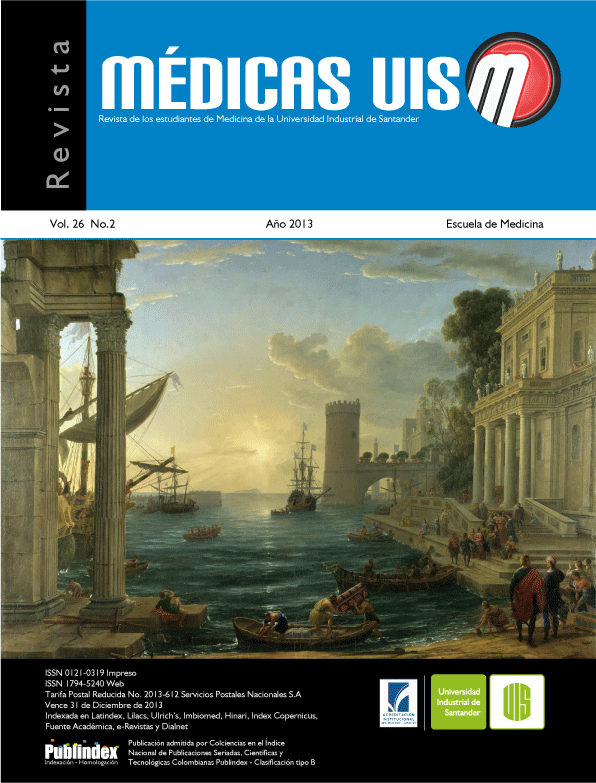Abstract
Introduction: the cultural conception of professions, are likely changing with the passage of time and their idiosyncrasy. It is problematic to rely blindly the Hippocratic oath in the contemporary age, where, both physicicans and patients have become intermediaries of the healthcare market. The scientifc update must be performed in conjunction with specifc bioethical premises with a deep awareness on current medical practice. Objective: to persuade Colombian physicians, as philosophical being, to recognize this age requires him or her to be a physician whose practice follow a holistic approach. Development: the Colombian clinician should get an idea of the professional context full of immediacy, which leave behind the obvious reason because the economic interest sacrifced equity and solidarity. Physicians have to work within the questionable benefts of the system and exercise maximum professionalism, being resourceful without sacrifcing their bioethical principles and medical correct practice in favor of controlling the patient’s illness. For this, it is vitally important to update and understand bioethical precepts like the principle of sufcient reason, Occam’s razor, and abductive reasoning. Conclusions: it is necessary that Colombian physicians, acknowledged and engage within the profession and vocation in a holistic way taking into account the requirements of the system, the patient’s needs and their own commitment to this through abductive, human and philosophical diagnosis thought. (MÉD.UIS.2013;26(2):75-9).
References
2. Urquidi G. En torno al ser para la muerte en Heidegger, Sartre y Lévinas. Buenos Aires: Revista Psikeba; 2007.
3. Gheorghiu V. La Hora 25. 1ª ed. Venezuela: Colección Los ríos profundos contemporáneos; 2009.
4. Cabanas A. La Conjura del Faraón. 1ª ed. Barcelona: Ediciones B; 2006.
5. Kant I. Observaciones del Sentimiento de lo Hermoso y Sublime. Los Ángeles: Universidad de California; 2003.
6. Hanson AE. Hipócrates: El Milagro Griego de la Medicina. USA: Academia Episcopal; 1996.
7. Preciado N. Ley 100, al tablero. Poder. 2008.
8. Correa P. Déficit de médicos y enfermeras en 2011. El Espectador. 25 de junio de 2009; Vivir.
9. Jolley N. La Compañía de Cambridge a Leibniz. New York: Ed. Universidad de Cambridge; 1995.
10. Jacoby H, Irwin W. La filosofía de Doctor House. 1ª ed. México D.F.: Editoriales Tauro; 2009.
11. Genova G, Charles S. Peirce: La lógica del descubrimiento. Navarra: S.N.; 1996.
12. Merino JA. Historia de la Filosofía Franciscana. Madrid: Verdad y Vida; 2001.
13. Stock BA. ¡Eso lo Explica Todo!. 1ª ed. México D.F.: Editoriales Tauro, 2009.
14. Dryden J. El Doctor House y la Suerte Moral. 1ª ed. México D.F.: Editoriales Tauro, 2009.
15. Xyle R. “Todo el mundo te importa”: ética de Cameron de la preocupación por los demás. 1ª ed. México D.F.: Editoriales Tauro, 2009.
16. Espino F. Medicina, Una Carrera Vulnerable. Santiago, República Dominicana: Obgyn Latina - UBM Médica; 1999.
